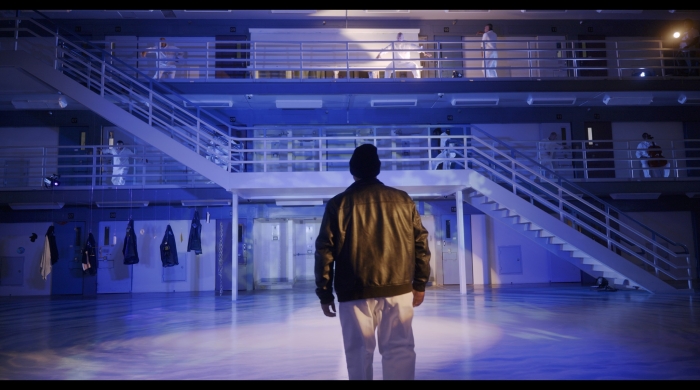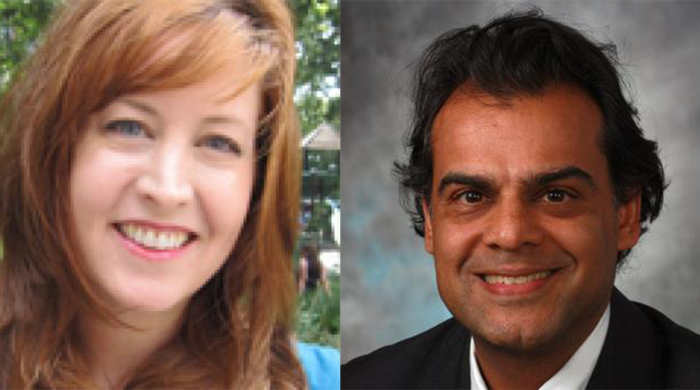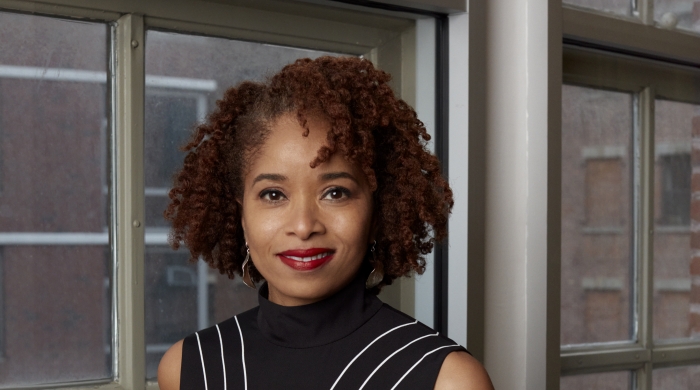NYU Blueprints for Progressive Change in Juvenile Justice is an interdisciplinary working group seeking to understand and eliminate the disparities that school-aged children often encounter with the legal system.
Faculty from across the University collaborate with policy and practice leaders to address these inequalities from different directions.
“Blueprints functions as a forum to exchange and develop research ideas among faculty doing work on youth involved with the juvenile justice/legal system,” says Luis A. Rodriguez, assistant professor of education leadership at NYU Steinhardt. “A large body of research exists that documents the school-to-prison pipeline, and much of it says that students who experience exclusionary discipline like suspension or expulsion are more likely to make their way to criminal justice process. Often, they aren’t having their specific needs met within the school system and end up being marginalized, and this can result in them taking on behaviors that lead them down a criminal path.”
For the best possible outcome – which is generally not being suspended or expelled in the first place – students who are facing suspension or possibly expulsion need legal representation to better understand their options.
Rodriguez, whose own research tries to understand the factors that lead to students experiencing school discipline, says that demographics like being low-income, in foster care or homeless, or from a historically marginalized background correlate to disproportionate discipline from teaching staff and faculty, who are largely middle-class white females.
“There is often a disconnect between students and the teachers and administrators in the school system,” says Rodriguez. “Sometimes principals might even be persuaded to use discipline as a tool, especially in areas that are rapidly gentrifying, which leads to a competing interest between the students coming in and those who have been there.”
“It Takes a Village”
The Suspension Representation Project is a collaborative advocacy group spun out of Blueprints, in which members of the Steinhardt community work with students from the NYU School of Law to provide these families with the free resources they need, while also giving the Law students valuable and holistic hands-on experience in the field.
Sireen Irsheid, a postdoctoral fellow in juvenile justice, education, and mental health, recently joined the Suspension Representation Project to help support both the system-impacted youth and families, as well as the students from the Law School.
Irsheid’s work considers the intersection of mental health, structural racism, and educational inequities – much of which comes from her personal experiences growing up in a disadvantaged neighborhood in Chicago and professional experiences working as a former school social worker in NYC.
Within NYU Blueprints, it’s beautiful to have a team of faculty interested in school pushout and coming at it from very different interdisciplinary angles – which is what needs to happen. Working collaboratively on things outside of our silos makes us stronger.
“When I was young, I saw a lot of people struggling with the effects of intergenerational poverty, and many of my friends were subject to school pushout and have ended up in low-paying jobs, in prison, or dead,” says Irsheid. “Instead of thinking about this problem on an individual level, I look at how cohorts of young Black and Brown people experience educational inequities that are driven by structural racism, and how we can change those systems.”
Irsheid works with the Law students to help them better understand the social contexts in which many of the Suspension Representation Project students are living and experiencing – such as poverty, home instability, and food insecurity – in order to holistically advocate for the young person during the school suspension hearing.
“These are system-level problems that we’re punishing individuals for,” says Irsheid. “I work with the Law students to first understand the lived experiences of these young people and the structural constraints they are forced to navigate. This allows us to provide a more holistic response and know how to better support them.”
Irsheid and the Law students are building relationships with principals in New York City schools to build rapport and inform more people about the benefits of restorative practices in favor of school pushout tactics. For Irsheid, it’s refreshing to work with an interdisciplinary team that has the same vision and goals from both the legal and the social work sides – a perspective that extends throughout NYU Blueprints as a whole.
“Within NYU Blueprints, it’s beautiful to have a team of faculty interested in school pushout and coming at it from very different interdisciplinary angles – which is what needs to happen,” says Irsheid. “Working collaboratively on things outside of our silos makes us stronger. We need a village to help support our young people to make sure they’re not engaging in the legal system, intervene at the policy level, and ultimately disrupt the school-prison nexus.”
This article is the second in a series about decriminalization and decarceration at NYU Steinhardt.
Related Articles
Bringing the Voices of the Incarcerated into the Limelight
NYU Steinhardt alum creates a groundbreaking prison arts performance with help from the Educational Theatre program's Verbatim Performance Lab and students.
IHDSC Awarded Grant to Launch Collaborative Working Group to Study Economic Inclusion and Family Health and Wellbeing
The Institute of Human Development and Social Change (IHDSC) has received funding from the Robert Wood Johnson Foundation (RWJF) to launch a collaborative working group.
Nicole Fleetwood Receives $1M Grant from the Mellon Foundation for Prison Art Initiative
Support of Steinhardt Professor Nicole Fleetwood's Marking Time initiative will amplify the art of the incarcerated.




